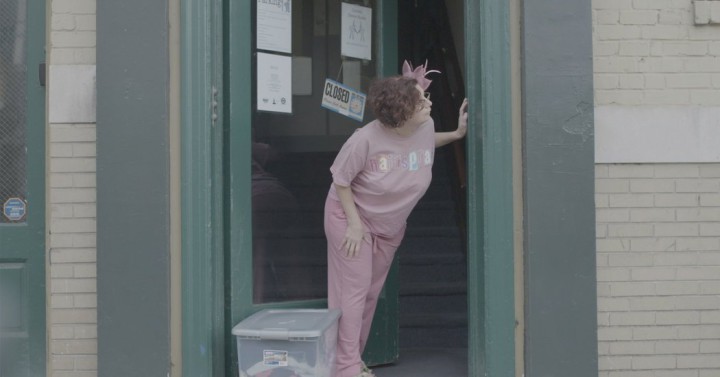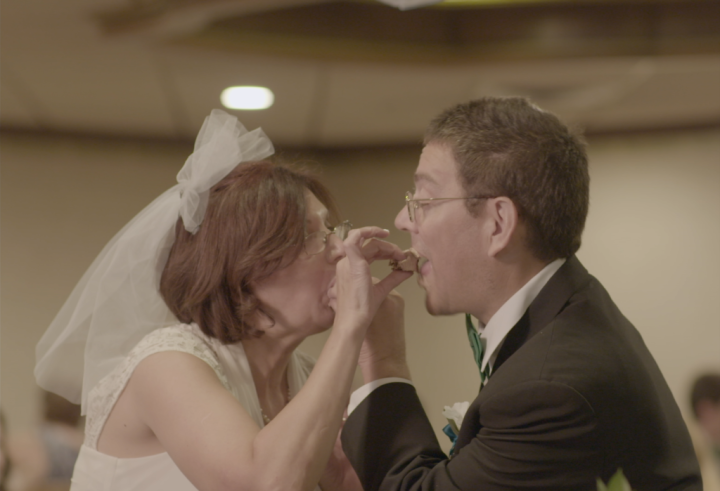Antonio Santini and Dan Sickles’ Dina is a movie I only watched a few hours before sitting down to write this. It’s also a movie that deserves more than a few hours to decide how one feels about it. My first instinct is that it’s an interesting film, with more interest in the way it’s constructed and the things it touches on than its actual quality. But that’s changed since I left the movie, and I have a sneaking suspicion it will change after I’ve finished writing this review.
I’m not sure my initial reaction is quite fair since I spent a chunk of the film wondering what the point of Dina is exactly. It’s a cinema verite look at the engagement period and eventual marriage of Dina and Scott, two people living with Asperger’s syndrome, and the film gets a very intimate access to their relationship. Obviously, by the title, the film mostly focuses on Dina. She has been married before (Scott seems to never have had a romantic relationship, let alone a sexual one) to a man who died of cancer; she doesn’t work due to disability and has a history with a violent ex-partner who nearly stabbed her to death.
Needless to say, she’s been through a lot in life (more than most people, I’d say), and it’s Dina’s wherewithal that makes the film engaging, especially since it starts off a bit too whimsical and quirky. I had a creeping sense early on in the film, judging by the trailer, that Dina might verge into the uncomfortably exploitative, and it gets close to that unfortunate outcome a few times. Thankfully, there’s a welcome sense of respect throughout the film that keeps Dina from falling into this trap.
This isn’t to say that the goofy tone of the film’s opening credits montage didn’t reinforce my worst fears, but the movie did slowly verge away from this into something much heavier and dramatic, without being out-and-out depressing and grim. Dina’s frustration with Scott’s reluctance and fear of intimacy, and Scott’s inability to know how to discuss his fears and concerns with her, is heartbreaking. And then there’s the way the film presents the facts of Dina’s stabbing, something that’s only referred to in passing. The incident is brought into the film in such a stark, surprising manner (one that is almost — but not quite — tawdry) that I’d venture that it’s possible to not be affected by it.
These moments are what saves the film from its more basic nature, one that wants to meander a bit too much. And there are chunks of the movie that feel like filler and don’t really add much. It’s unfortunate that Dina has so many of these moments because the times the movie does manage to be affecting, it’s superb and not quite like anything I’ve seen in a long time. Not Rated. Now playing at Grail Moviehouse.









Before you comment
The comments section is here to provide a platform for civil dialogue on the issues we face together as a local community. Xpress is committed to offering this platform for all voices, but when the tone of the discussion gets nasty or strays off topic, we believe many people choose not to participate. Xpress editors are determined to moderate comments to ensure a constructive interchange is maintained. All comments judged not to be in keeping with the spirit of civil discourse will be removed and repeat violators will be banned. See here for our terms of service. Thank you for being part of this effort to promote respectful discussion.